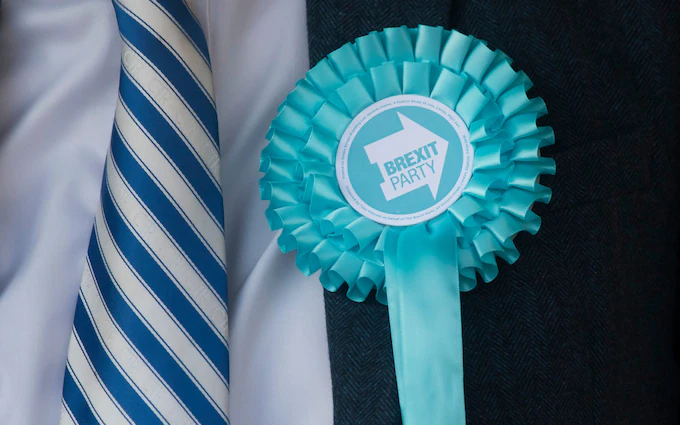The ever-reliable daily summary of news headlines circulated by the redoubtable John Spellar MP featured an unusual item this morning.
The headline in question – “Nigel Farage’s Reform UK party is the Tories’ worst nightmare – and ours” – topped an opinion piece by Kevin Maguire. But while Maguire makes a persuasive argument that Reform UK poses a significant electoral threat to the Conservatives at the next election, there is no explanation as to how this could also become “our” (that is, Labour’s) nightmare too. Yet this goes to the heart of the malaise that has plagued UK politics – and the US variety – for a decade or longer. Across the Atlantic, Donald Trump continues to make life very uncomfortable, not only for the Democrats but for his own party. For years the establishments of both the GOP and the Democrats were happy to conduct political debate according to the terms they themselves had mutually set. And those terms did not include the concerns and priorities of what Hillary Clinton in 2016 so memorably labelled the “basket of deplorables”. Americans living largely in the mid-West, with no college degrees and who worked in manual, often insecure jobs, who drove pick-up trucks, listened to Country music and owned guns, rarely heard any politician speaking their language or expressing any understanding of their lives. Then Trump came along. America has yet to produce a candidate less suited to the highest elected office in the land. But he talks a language that many ordinary Americans appreciate, because so few others had done so. That alone makes him unique in the US political landscape, and it was naïve for observers to imagine that this would not gain him traction.
Nigel Farage comes closer to the Trump style than any other British politician. Those who equate Boris Johnson with the 45th president really haven’t been paying attention and seem to have come to that conclusion based simply on their contempt for each man. But it is Farage who threatens to be the kind of subversive force here that Trump has been in America. The first-past-the-post electoral system and the fact that we are a parliamentary democracy rather than a presidential one has, for now, limited Farage’s ambitions, and may well do so in the future.
But it would be a mistake for the two main parties to express satisfaction at such an outcome. Farage has tapped into a significant degree of discontent in the British electorate; it is not – or at least should not be – enough to smear defeat those people as “far Right”, to defeat their candidates and to continue ignoring their concerns as the political parties have done in the US.
Why shouldn’t working class, non university-educated, non home-owning citizens express their concerns about the political priorities of the ruling classes? Why shouldn’t they be worried about the historical high levels of immigration or the changes and challenges such historic immigration have wrought in their communities?
It would be absurd for an unemployed school leaver in Newcastle to jump on board the bandwagon that hands out lectures about “white privilege”. Diversity, equity and inclusion are hardly priorities for those whom the cost-of-living crisis threatens to bury under a sea of personal debt and frustrated ambitions.
Farage understands all this in a way that mainstream politicians do not. They have chosen to pretend that their own agenda is for the many, not the few, while conveniently forgetting that the “few”, while they are indeed a minority, are nonetheless a large one that is just as deserving of a voice and representation as the “many”.
For the time being, Reform UK poses an existential threat to the Conservatives, and that suits Labour for obvious reasons. But after the polls close on election day, we are likely to see not just an overwhelming Labour majority in the Commons, but a large swathe of voters who are still unhappy, still without hope and, thanks to the electoral system, still without representation. That is very bad news for Rishi Sunak today, but it will be equally bad for Labour in the future unless its leadership starts making a serious effort to listen to voters and not just lecture them about why they need to change their minds and their priorities.
It will be said that squaring the circle is beyond the abilities of modern politicians. How can a progressive, Left-of-centre political party that needs to hone its message to appeal to as broad a section of the nation as possible ever hope to accommodate communities who believe in all sorts of unfashionable and outdated ideas?
The answer is that if you can’t, politics probably isn’t for you. And if the dam bursts one day, if all the structures and systems that have successfully prevented the malcontents from wielding real political power somehow fail, those politicians may find their time in politics coming to an unexpected and well-deserved end. DT.

